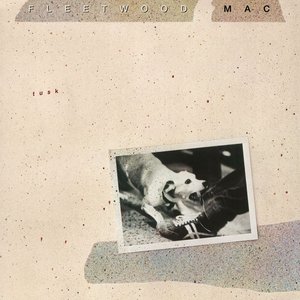Published on Jun 24, 2004
How can a group follow up on one of the biggest selling albums
of all time? Simple: Build a million dollar studio, give
near/complete control of production to one of your members, and
record a double album.
This is indeed what Fleetwood Mac did in 1979.
Rumours was the most successful album of 1977. By the time
Tusk was released, it had already sold 13 million copies.
Even if Fleetwood Mac had come out with another
Sgt. Pepper’s, the new album could never live up to
expectations. It is unfortunate that was the case, as Tusk is a
near brilliant album, pushing the boundaries of what “pop” music
was in the early 1980’s.
Fleetwood Mac has been driven by three major forces within the
band since 1975, Lindsey Buckingham, Stevie Nicks and Christine
McVie. Buckingham is the “experimente.r. McVie can always be turned
to for a good pop song. Nicks lies somewhere in the middle. On
Tusk, the balance is decidedly in Buckingham’s favor, but
the other two are not excluded, not by a long shot.
McVie and Nicks both turn in great performances, but it is
Buckingham that I want to talk about. His songs are the most
interesting, lyrically and musically. It is also important to note
Buckingham was a producer on the album. His vision is fully
realized. Buckingham goes with a
Pet Sounds approach in regard to how his songs sound. There
are African rhythms, shoebox guitars, a plethora of unique sounds
and solos that make his songs more than just a regular “pop”
song.
The best example of such is “Tusk.” The vocals are sung more
intensely than perhaps any Mac single to date. The aforementioned
African Beats are thrown in; the USC Marching band provides a
stirring brass performance, all the while with various shouts and
comments from the band being blared from your speakers. The result
is one of the strangest yet most engaging pop singles of the last
three decades.
As I said earlier, Nicks and McVie both perform admirably.
Stevie Nicks has always had one of the most unique voices in rock,
and that isn’t any different on Tusk. Her strong, at times almost
husky, vocal deliveries make up for deficiencies in the lyrical
material. “Dreams” and “That’s Enough For Me” are typical Nicks
songs, in the vein of a power ballad. She gets by on feeling,
rather than technique. McVie’s straight-out pop numbers anchor the
album. On Mac’s most recent album,
Say You Will, McVie chose not to participate. Her presence
was sorely missed, as the album became more like Buckingham/Nicks
solo material rather than Fleetwood Mac.
Rumours struck a chord with the populace, in part because of
the nature of the lyrics — it’s the ultimate break-up album.
Tusk does not repeat the same subject material. By this
point, the band’s old wounds had somewhat healed. Lyrically, just
like the style, the album is all over the map. Some are love songs,
some venture into more abstract territory. The latter is
Buckingham’s influence certainly.
However, there is one important factor that takes away from
Tusk. It is a double album. The double album is usually
indicative of the success of a band, coming at the height of their
popularity. However, it is near impossible to pull off a double LP
without it containing some filler material. This is true from
The White Album to
Physical Graffiti.
Tusk is guilty of this crime as well. The second half of
Tusk, while sounding just as good as earlier songs, just
doesn’t hold up as well. It runs out of steam, though it gains
momentum back with “Tusk and “Never Forget.” Tusk could have been a
brilliant single album, but it was not meant to be.
